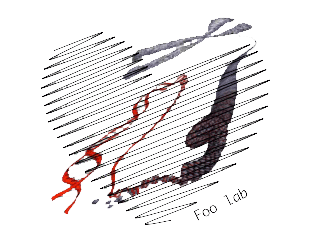
Matt Ackers-Johnson
PhD
Post-Doc Fellow
PhD
Post-Doc Fellow
Email: mdcmaa@nus.edu.sg
My interests lie in how the cells in our heart talk to each other, and how a deeper understanding of this process can lead to new strategies for tackling the burden of cardiovascular disease. Since joining the Foo Lab, this pursuit has led to the development of several methods for cellular dissociation of the heart, with a goal of isolating pure populations for individual and co-culture studies. The first of these can be found here.
I continue to collaborate and offer advice to labs worldwide on techniques for cardiomyocyte isolation, please do get in touch with any questions or comments.
More recently, together with colleagues, I have adopted single cell RNA sequencing as a technique to investigate cellular diversity and communication in the adult mammalian heart. More on that, here.
Current research directions focus on the signalling interplays between resident cardiac cells, and infiltrating inflammatory cells, following insults such as ischaemic injury.
I have earned the lab nickname of “Owl”, make of that what you will. But really, when I’m not in lab, chances are you’ll find me relaxing somewhere sunny, and sandy.
Publications
- Targeting the highly abundant circular RNA circSlc8a1 in cardiomyocytes attenuates pressure overload induced hypertrophy.
- Langendorff-Free Isolation and Propagation of Adult Mouse Cardiomyocytes.
- Following hearts, one cell at a time: recent applications of single-cell RNA sequencing to the understanding of heart disease.
- Targeting Chondroitin Sulfate Glycosaminoglycans to Treat Cardiac Fibrosis in Pathological Remodeling.
- Single Nuclear RNA-sequencing of Cardiomyocytes Reveals lincRNAs Regulating Cell Cycle Re-entry and Proliferation during Stress Response in vivo
- A landscape of circular RNA expression in the human heart.
- A Simplified, Langendorff-Free Method for Concomitant Isolation of Viable Cardiac Myocytes and Nonmyocytes From the Adult Mouse Heart.
- A Transcriptomic and Epigenomic Comparison of Fetal and Adult Human Cardiac Fibroblasts Reveals Novel Key Transcription Factors in Adult Cardiac Fibroblasts.
- Experimental heart failure modelled by the cardiomyocyte-specific loss of an epigenome modifier, DNMT3B.
- Natriuretic peptide receptor 3 (NPR3) is regulated by microRNA-100.
- Myocardin regulates vascular smooth muscle cell inflammatory activation and disease.
- Myocardin regulates vascular response to injury through miR-24/-29a and platelet-derived growth factor receptor-β.
- Maternal diet and aging alter the epigenetic control of a promoter-enhancer interaction at the Hnf4a gene in rat pancreatic islets.
